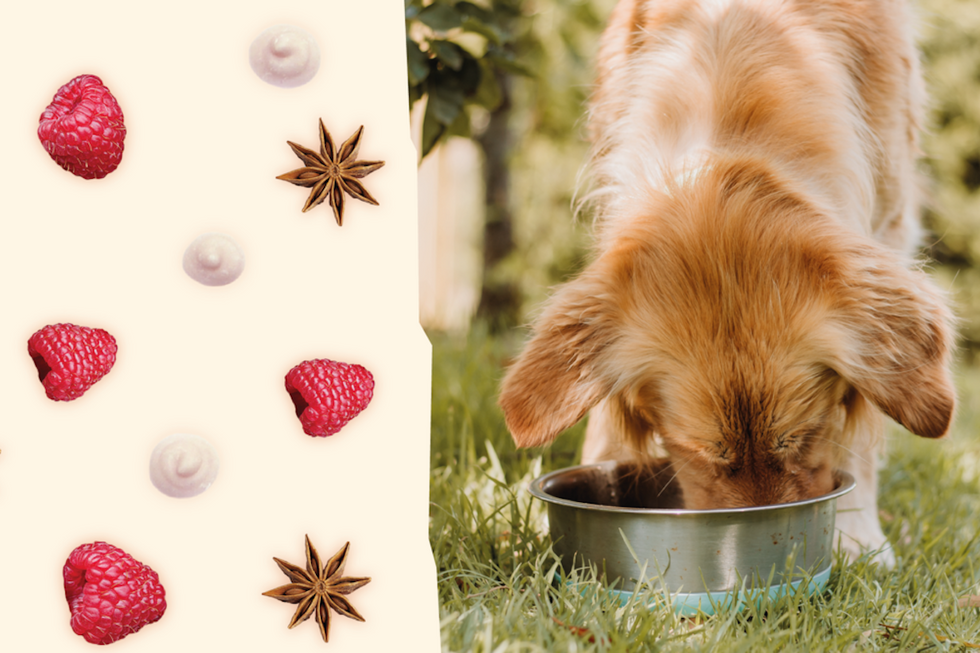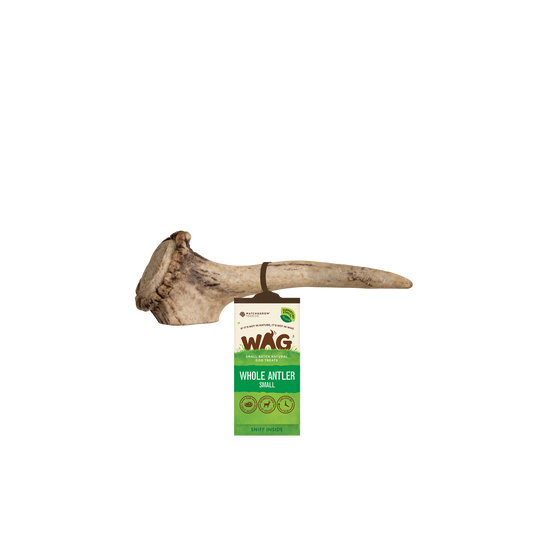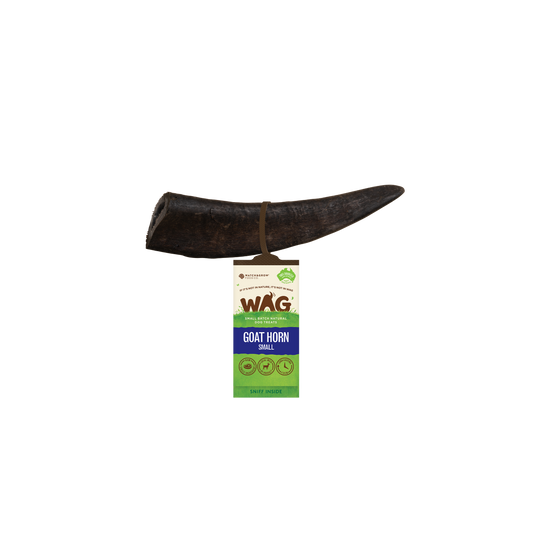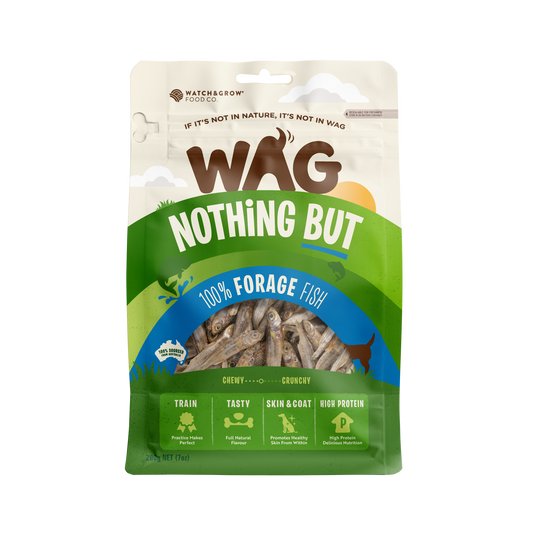Owning a dog that is allergic to kangaroo is pretty rare – but it does happen! Why is a kangaroo allergy unlikely? Because kangaroo is known to be one of the most hypoallergenic meats. It’s a novel protein, meaning most dogs have had less opportunity to be exposed to kangaroo compared to chicken or beef.
As more dog owners turn to natural and sustainable treat options for their doggos, kangaroo is becoming more popular. So what do you do when your dog has a sensitivity or allergy to one of the most hypoallergenic meats?
We chatted with Sarah, the proud owner of Cocker Spaniel Chloe, about what it’s like to have a dog with a kangaroo allergy and what alternatives you can try instead.
How can you tell if your dog is allergic to kangaroo?
Like many allergies in humans, often you can’t tell that a dog is allergic to a certain meat until they’ve already tried it. Food allergies in dogs can also develop over several years. So if you’ve given them a treat in the past, it’s not always set in stone that they’re not going to have a reaction.
The best way to make sure you’re prepared for your dog having an allergic reaction is to know the signs and chat with your vet to investigate the potential cause.
For Sarah, Chloe’s allergy developed was hard to pinpoint from the beginning.
How did Chloe’s allergy emerge?
“Chloe started having roo ribs when she was around 6 months old,” Sarah explains. “She loved them and she tolerated them at that point. She would sometimes get an upset stomach, but I found it difficult to associate it with kangaroo.”
“When she was a bit older I got her 2 kangaroo tails. I gave her the first one and she loved it so much! The next day she had some diarrhoea. It was worse than it had been in the past, but at that point she’d been getting an upset stomach from time to time, so I wasn’t too concerned.”
Sarah says that she waited a couple of days before giving Chloe the second kangaroo treat. And although Chloe was more than happy to chow down on the treat at the time, the next day things took a turn for the worse.
“She started with diarrhoea, then began vomiting and then even developed blood in her diarrhoea. So I rushed her to the vet, thinking the worst.”
Always consult your vet when investigating a dog’s allergy
“The vet advised me that if I suspected a food was causing the allergy, that giving her a small amount of that food would be a good way to confirm so that I know what to avoid in future. I wasn’t 100% sure it was the kangaroo, but that was my best guess, as it was the most significant difference in her diet whenever she got sick.”
Sarah waited three weeks for Chloe’s stomach to settle and let the inflammation go down before she tested the theory that it was kangaroo making her beloved pet sick.
“I gave her a small amount of kangaroo jerky,” Sarah explains. “Not enough to make her very ill again, but enough for me to know that kangaroo was the culprit. Sure enough, the next day she had diarrhoea!”
What are symptoms presenting when a dog has an allergy?
While Chloe’s allergy symptoms presented as an upset stomach, there are other signs that your doggo could be suffering from an allergy to their food or their environment. Common symptoms include:
- vomiting
- diarrhea
- redness, irritation and itching
- skin damage (scabs and hot spots)
- hair loss
- repeated ear infections
What can you feed a dog that is allergic to kangaroo?
Every dog deserves a treat now and then for being a good girl or boy. Just because they might have an allergy or sensitivity, doesn’t mean that that they have to miss out! Chicken and beef are two of the most common meat allergies in dogs. If your dog has a reaction to these meats as well as kangaroo, then there are other alternatives. Venison, goat and even fish could be good substitutes as other novel and low-allergenic proteins.
“Chloe loves dried meat products best,” says Sarah. “Bully sticks, jerky and freeze-dried meat treats are some of her favourites!
While most dog treats are exclusively meat proteins, there are other non-meat treats that you can give your dog to avoid their allergens – try fruit (watermelon and blueberries are safe for dogs).
Having a dog with an allergy also means keeping a keen eye out when others don’t always do the right thing. Sarah found that even after identifying Chloe’s allergy and keeping her away from kangaroo meat at home, it wasn’t always a sure thing outside the house.
“We were at some markets, and a stall owner offered Chloe a kangaroo jerky treat without asking,” she says. “Of course, Chloe ate it too fast for me to do anything about it – which also caused diarrhoea. So a quick message to all people, don’t give dogs treats without asking their owner!”
“A message message to all people – don’t give dogs treats without asking their owner!”
Can you avoid dog allergies by feeding your dog natural products?
Like all food or environmental allergies, just because a product is natural doesn’t mean that you or your dog can’t have a reaction to it. Ever heard of hayfever? But that doesn’t mean that a natural, raw and wholesome diet isn’t the one of the best things to keep your doggo both happy and healthy.
Sarah makes it her mission to indulge Chloe in food and treats that aren’t just delicious, but healthy too.
“I am of the opinion that getting a dog should be less about the fact that, I the owner wants one, and more about what kind of life I want to offer my dog,” Sarah says. “Chloe is on a predominantly raw diet. For her meals she eats a combination of frozen raw complete and balanced patties, air and freeze dried raw food, and a small amount of high-quality kibble.”
“All food that I feed Chloe is made by Australian or New Zealand companies. That’s something that’s very important to me. I do this not only for quality purposes, but also to support local businesses.”
Do you have a dog with an allergy? Explore natural treats that could be suitable for their needs here.
Shop the Recipe
WAG Team
Up Next
Can dogs eat aniseed?




